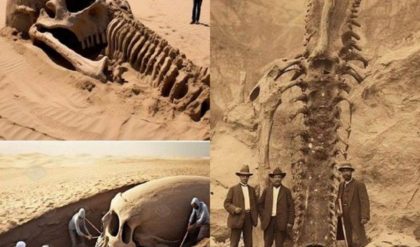Recent archaeological discoveries are challenging long-held beliefs about the timeline of human civilization. Emerging evidence suggests that sophisticated civilizations may have existed long before the last Ice Age, fundamentally altering our understanding of human history.
Groundbreaking Discoveries
Archaeologists have unearthed artifacts and structures that indicate advanced societies flourished thousands of years earlier than previously thought. Sites in various parts of the world, including Göbekli Tepe in Turkey and underwater ruins off the coast of India, are revealing complex architecture, intricate carvings, and advanced tool usage that predate the Ice Age.
Göbekli Tepe: A Prehistoric Marvel
Göbekli Tepe, often referred to as the world’s first temple, dates back to around 9600 BCE, well before the advent of agriculture and written language. The site features massive stone pillars arranged in circles, adorned with detailed carvings of animals and abstract symbols. This level of sophistication suggests that the builders possessed significant knowledge and organizational skills, hinting at a highly developed society.
Submerged Structures in India
Off the coast of the Indian state of Gujarat, underwater explorations have revealed the remnants of ancient cities submerged by rising sea levels at the end of the last Ice Age. These structures include grid-like city layouts, sophisticated drainage systems, and artifacts that indicate a high level of craftsmanship. Radiocarbon dating places these ruins at over 9,000 years old, further supporting the notion of advanced pre-Ice Age civilizations.
Challenging Established Timelines
These discoveries are prompting historians and archaeologists to re-evaluate the established timeline of human development. Traditional theories suggest that civilization began around 3000 BCE with the rise of Mesopotamia, Egypt, and the Indus Valley. However, the new evidence points to the existence of complex societies thousands of years earlier, necessitating a rethinking of human history.
Implications for Human History
The implications of these findings are profound. If advanced civilizations did exist before the Ice Age, it suggests that humanity’s journey towards complexity and organization began much earlier than previously believed. This could mean that knowledge and skills were lost and rediscovered multiple times throughout history, highlighting the resilience and adaptability of human societies.

Future Research Directions
The archaeological community is now focused on uncovering more evidence and understanding the extent of these early civilizations. Further excavations and technological advancements in dating methods will likely yield even more insights into our ancient past. Researchers are particularly interested in exploring other potential pre-Ice Age sites around the world, including those currently submerged or in remote locations.
Conclusion
The notion that sophisticated civilizations predated the Ice Age is gaining traction with each new discovery. As archaeologists continue to unearth and analyze ancient artifacts and structures, our understanding of human history is poised for a significant transformation. These revelations not only rewrite the timeline of civilization but also deepen our appreciation for the ingenuity and resilience of our ancestors.





